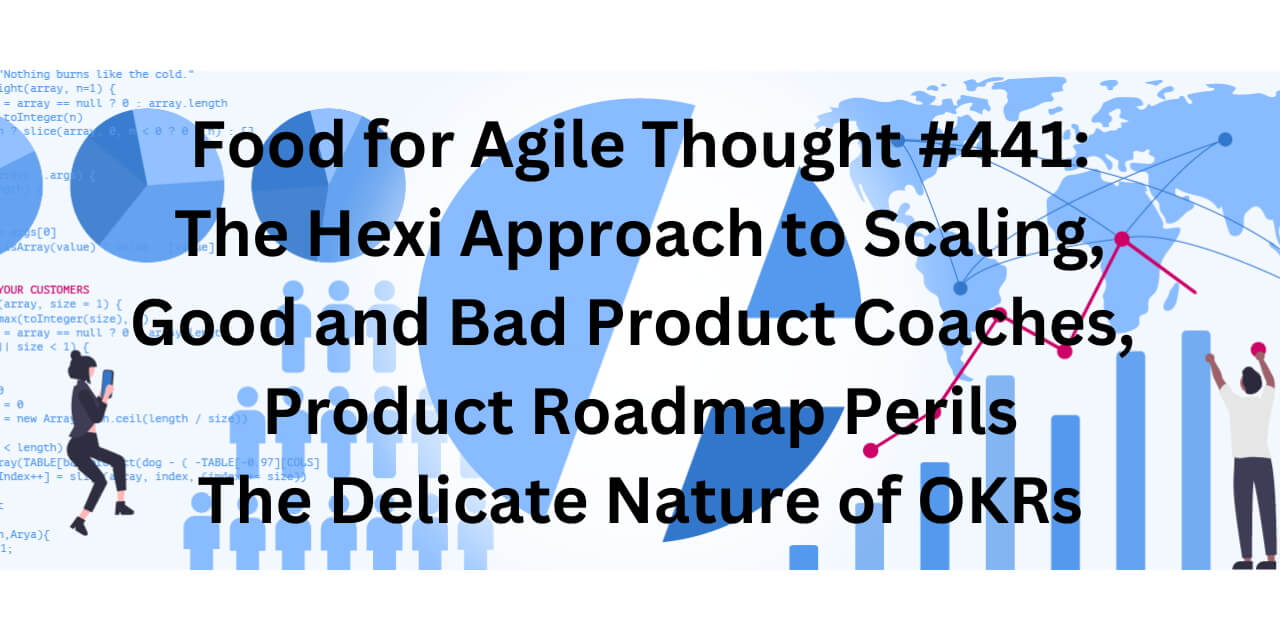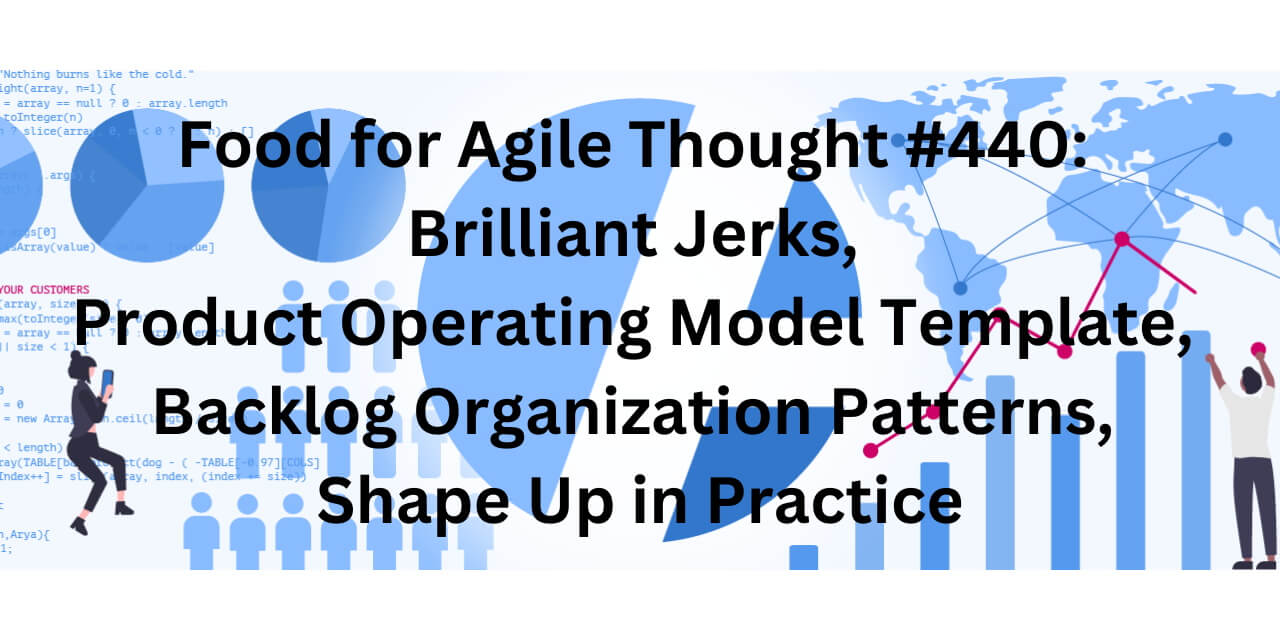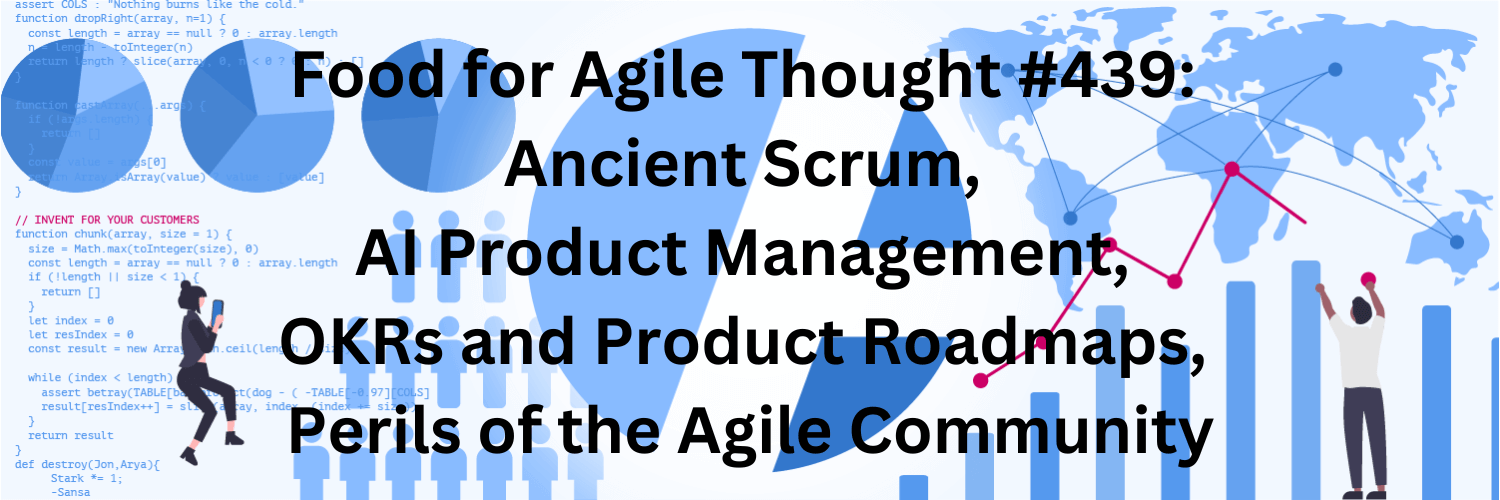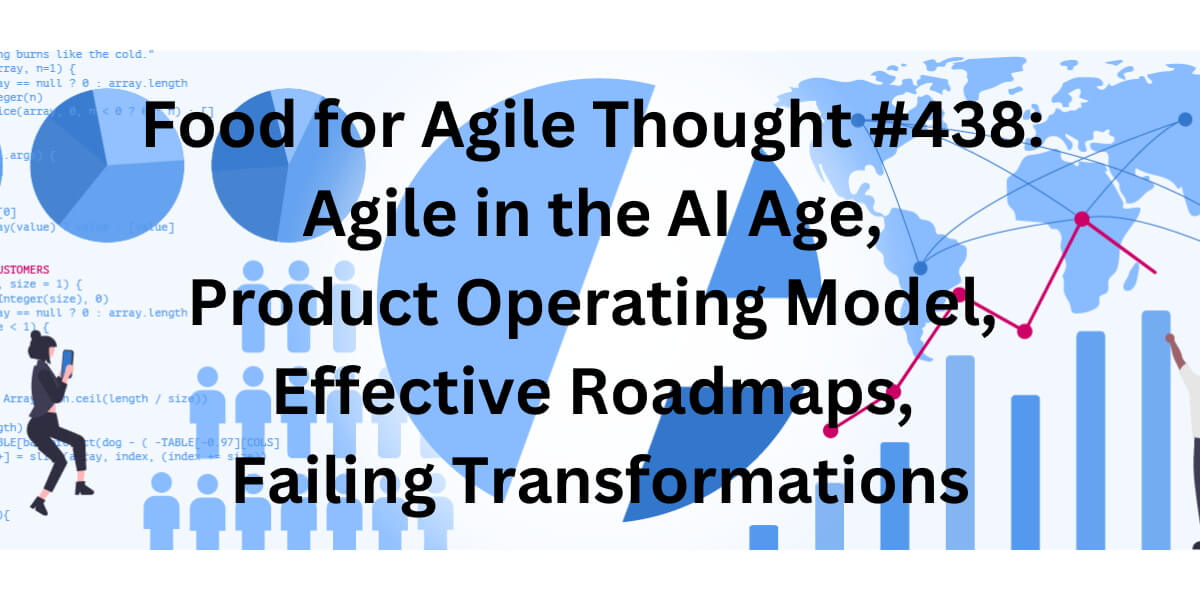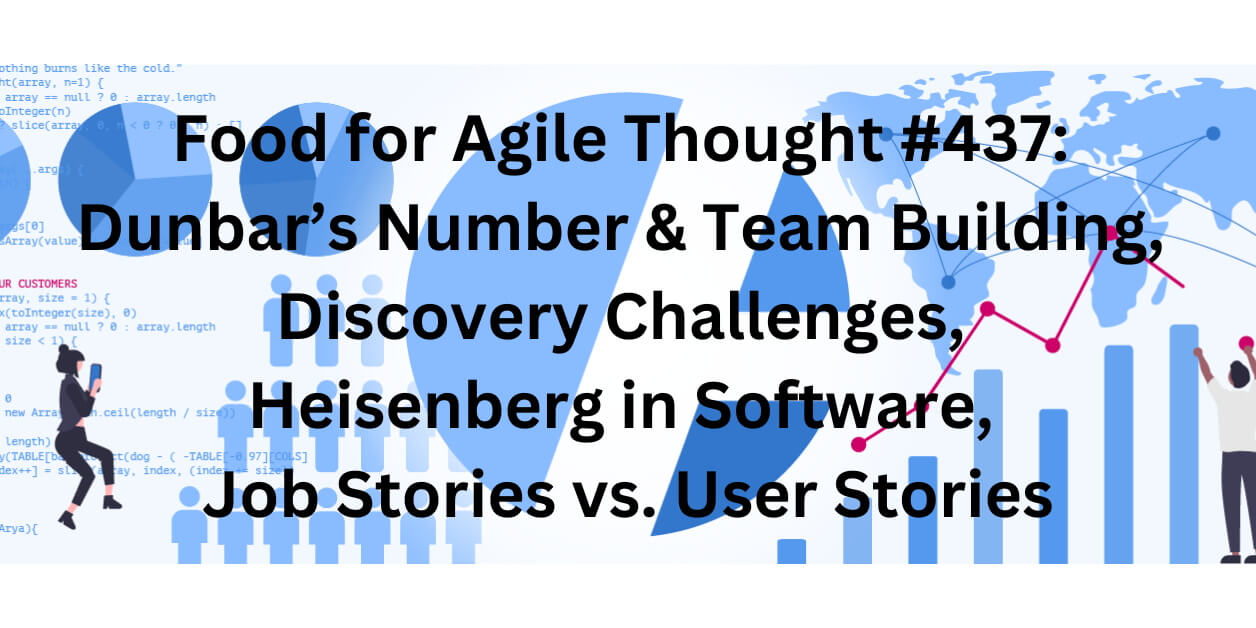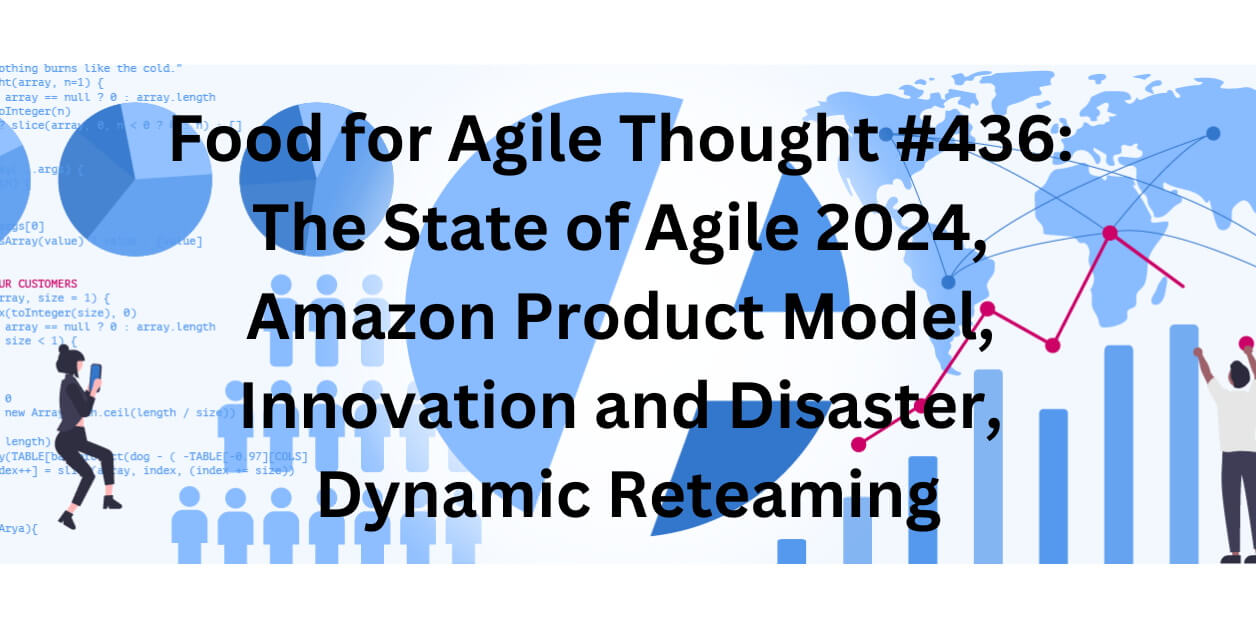TL; DR: The Hexi Approach to Scaling — Food for Agile Thought #441
Welcome to the 441st edition of the Food for Agile Thought newsletter, shared with 42,489 peers. This week, Dave Snowden and Nigel Thurlow present the Hexi approach, a multi-method strategy enhancing agility through complex adaptive systems. Joshua Arnold advocates for a Quarterly Look Ahead process, and Annie Duke and Lenny Rachitsky explore decision-making improvements using techniques like the “3Ds” framework and pre-mortems. Also, we reveal the hidden costs of offshore software consulting and delve into system-level anti-patterns of stakeholders. Additionally, Willem-Jan Ageling revisits the Agile Manifesto’s principles.
Then, Chris Beswick addresses strategic innovation frameworks, while Marty Cagan emphasizes the critical role of experienced product coaches. Ant Murphy advocates for empathy in problem-solving, and Leah Tharin highlights key pitfalls in product road-mapping, stressing strategic, focused approaches for organizational success.
Lastly, Daniele Davi discusses Kaizen and its role in Agile, emphasizing continuous improvement. Maarten Dalmijn compares OKRs’ fragility to coral, stressing the need for optimal conditions, while Letitia Rohaise critiques traditional personas, advocating for inclusive methods like Jobs-To-Be-Done. Moreover, Paweł Huryn offers strategies for effective surveys, focusing on improving response quality. Finally, Joca Torres explores boosting team productivity through role clarity and method optimization, sharing insights from his experiences across multiple companies.
